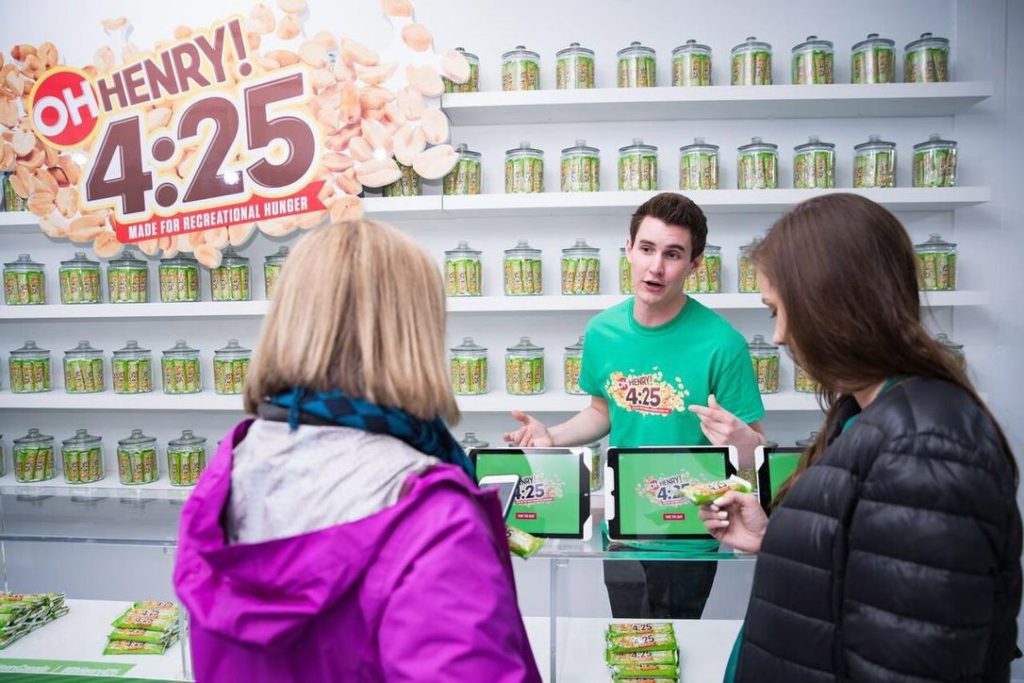The upcoming nationwide legalization of cannabis in Canada is starting a buzz throughout the food industry. With alcohol manufacturers already dipping their toes into the growing marijuana market, food companies do not want to be left behind. This is why well-known food companies have been developing products that are specifically made to complement the spike in hunger that occurs after most people use cannabis, which is also referred to as “munchies.”
With thirty states and the District of Columbia having already legalized cannabis in some form, Canada isn’t the only market that food companies can target. However, since recreational marijuana is legal in only eight states, Canada provides a much more expansive market, which might be why these food companies are testing their products up north. In addition, food companies do not have to comply with governing marijuana laws, especially the ban on edibles in Canada, if they produce cannabis-free products that simply capitalize on the trend.
Hershey Canada jumped at the chance to promote their Oh Henry! chocolate bar to hungry cannabis enthusiasts on April 20th. Often referred to as 4:20, the date and time of the day are known in the cannabis community as a popular time to smoke. Which is why the company had to introduce their cannabis-themed treat to the public prior to their rollout of the special edition bar earlier this month.
“Oh Henry! 4:25” was given its name to promote the fact that it was “specially formulated for the intense hunger that hits 5 minutes after 4:20.” The company reached out to Torontonians with a pop-up shop in April that was designed to look just like a dispensary with glass jars that were filled with the bars. Brand ambassadors were dressed in green shirts and lab coats and they stood behind a glass display case that contained the bars as well. There were posters on the walls of the fake dispensary that read “It’s edible. It’s not an edible.” Oh Henry! 4:25 is packaged in a green wrapper and contains more salt and protein than the original bar. Below the 4:25 logo on the bar’s packaging, the company wrote:“ Never be hungry 5 minutes after 4:20 again.”
“It’s going to be a subtle hint, a wink at the 4-20 moment. The thought is that people in the culture, people in the know will get the reference,” Jackson Hitchon, Hershey Canada’s Senior Director of Marketing told CTV News.
A Vancouver based company called 4:20 Grasshopper’s Gourmet is trying to capitalize on cannabis culture and healthy eating at the same time with healthy snacks. The company offers a variety of nutritious trail mixes, which include a product called “Sticks and Stoners.”
“We thought it would be kind of fun to just to potentially offer a little better munchie-snacking alternative, to anyone who was suffering from the munchies,” said Kenny Vannucci, Co-founder and Owner of 4:20 Grasshopper’s Gourmet to CTV News.
Even international food delivery company Foodora capitalized on the 4-20 trend in April with a “Hot Box” promotion in partnership with seven restaurants who asked to create an “over the top, munchie-style” dish. These Hot Boxes also included a lighter, a box of mints and a pair of sunglasses. Foodora is also looking into doing a similar promotion on October 17 – the official Canadian legalization date – and beyond.
South of the border, American food companies have been producing cannabis-friendly products as well. The fast-food chain, Jack in the Box, celebrated the legalization of recreational marijuana in California on January 1st with a limited edition late-night “Merry Munchie Meal” in select California restaurants. The meal box included two tacos, five mini churros and three chicken strips for $4.20. The fast-food chain partnered with Snoop Dog’s Merry Jane brand to promote their 4-20 themed meal.
However, the bigger money opportunity lies in the cannabis market itself. Last year, California consumers purchased $180 million worth of cannabis-infused foods. With the legal cannabis market expected to reach an estimated $24.1 billion by 2025, there are likely more cannabis-related innovations to come.
However, with Canada having passed Bill C-45 last month, cannabis companies are not allowed to promote their products through billboards, print ads and broadcast, which means that they will have some trouble with reaching out to new consumers. This is why the food industry has an advantage in selling products to cannabis-enthusiasts because the government does not monitor the commercialization of non-cannabis infused treats.
“The food industry is known to be extremely risk averse and it won’t be any different toward cannabis. Until the industry knows the consumer is ready, cannabis edibles will stay on the sidelines—but hopefully not for too long,” Sylvain Charlebois, a professor in food distribution and policy at Dalhousie University in Halifax told CTV News.












Join or login to leave a comment
JOIN LOGIN